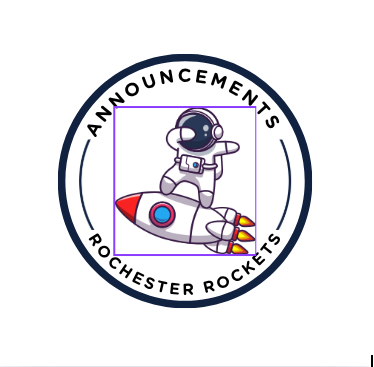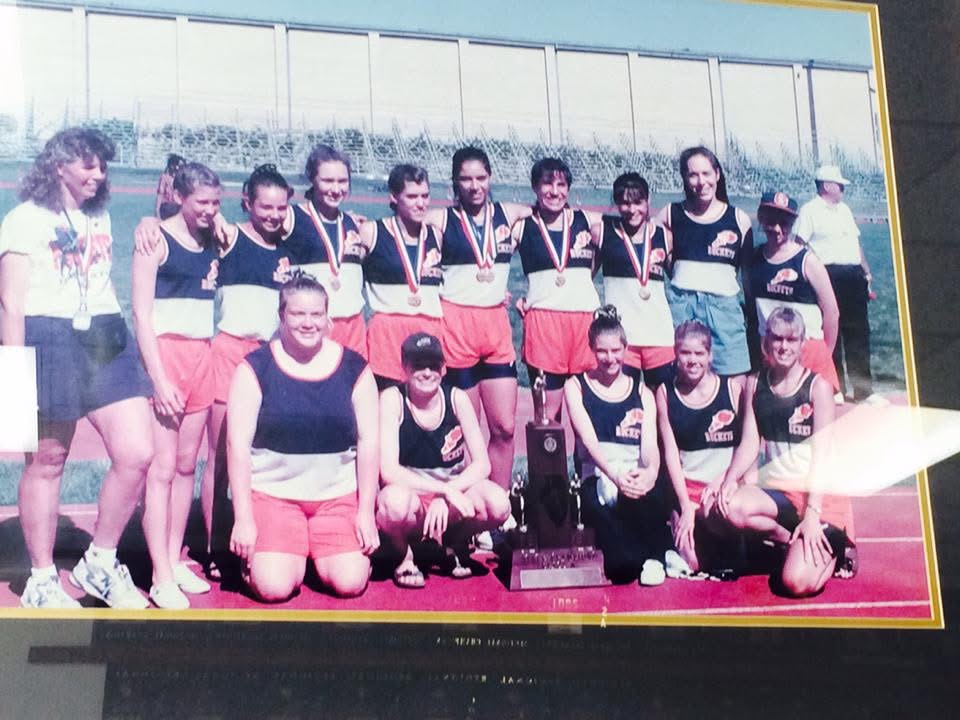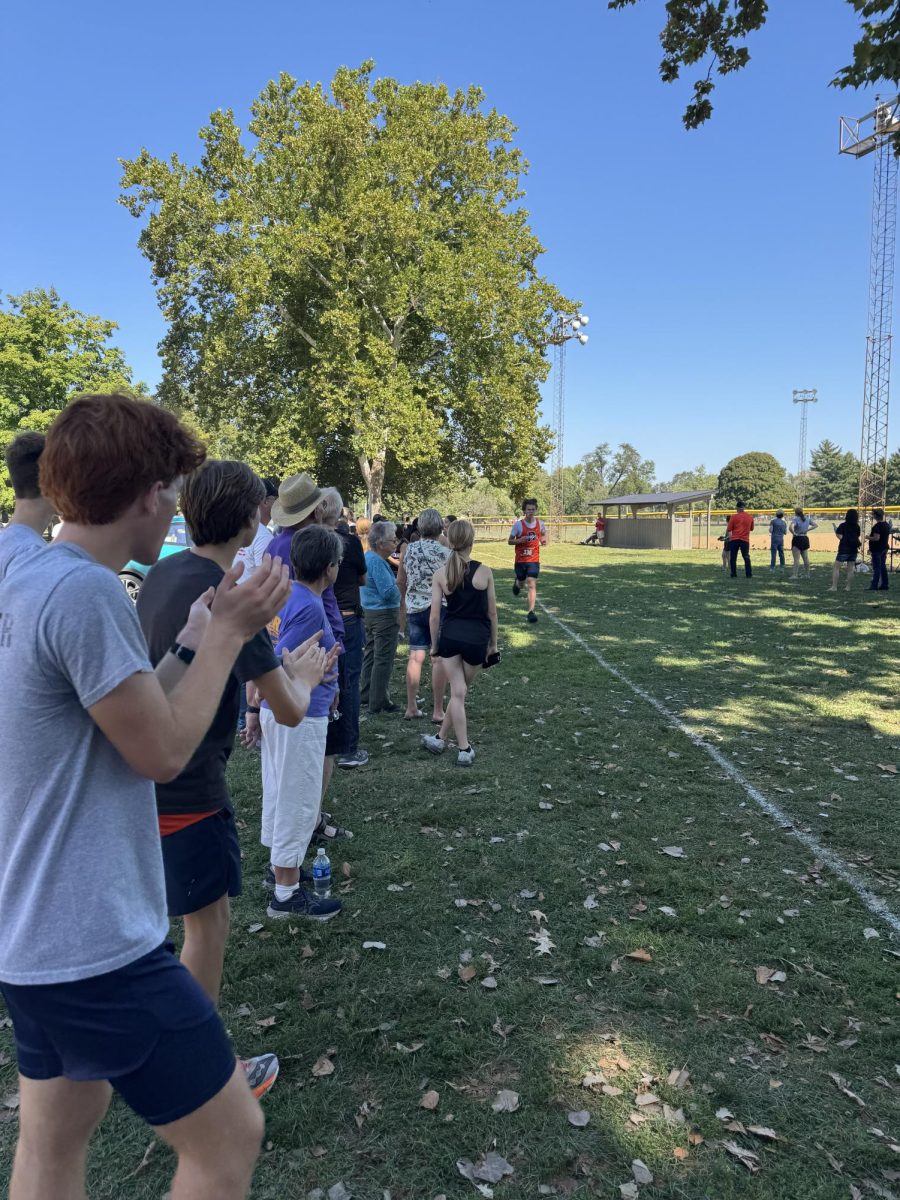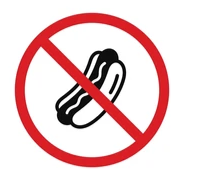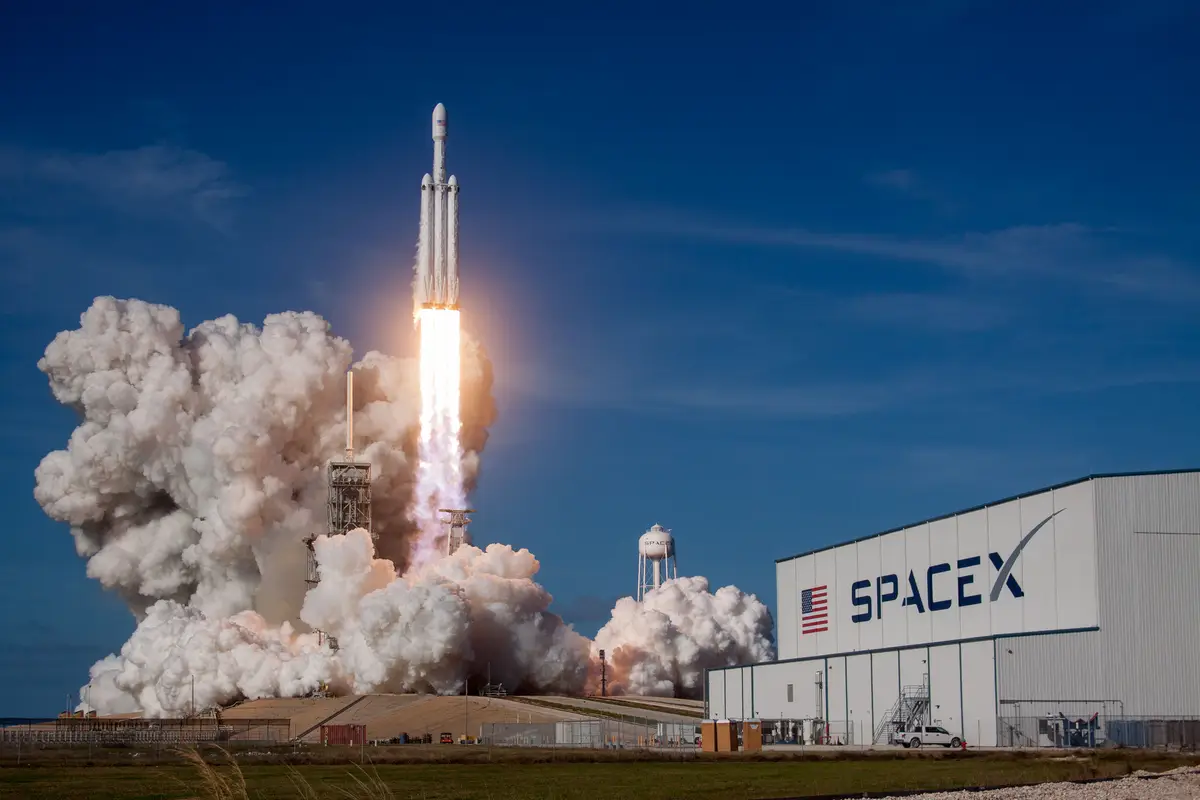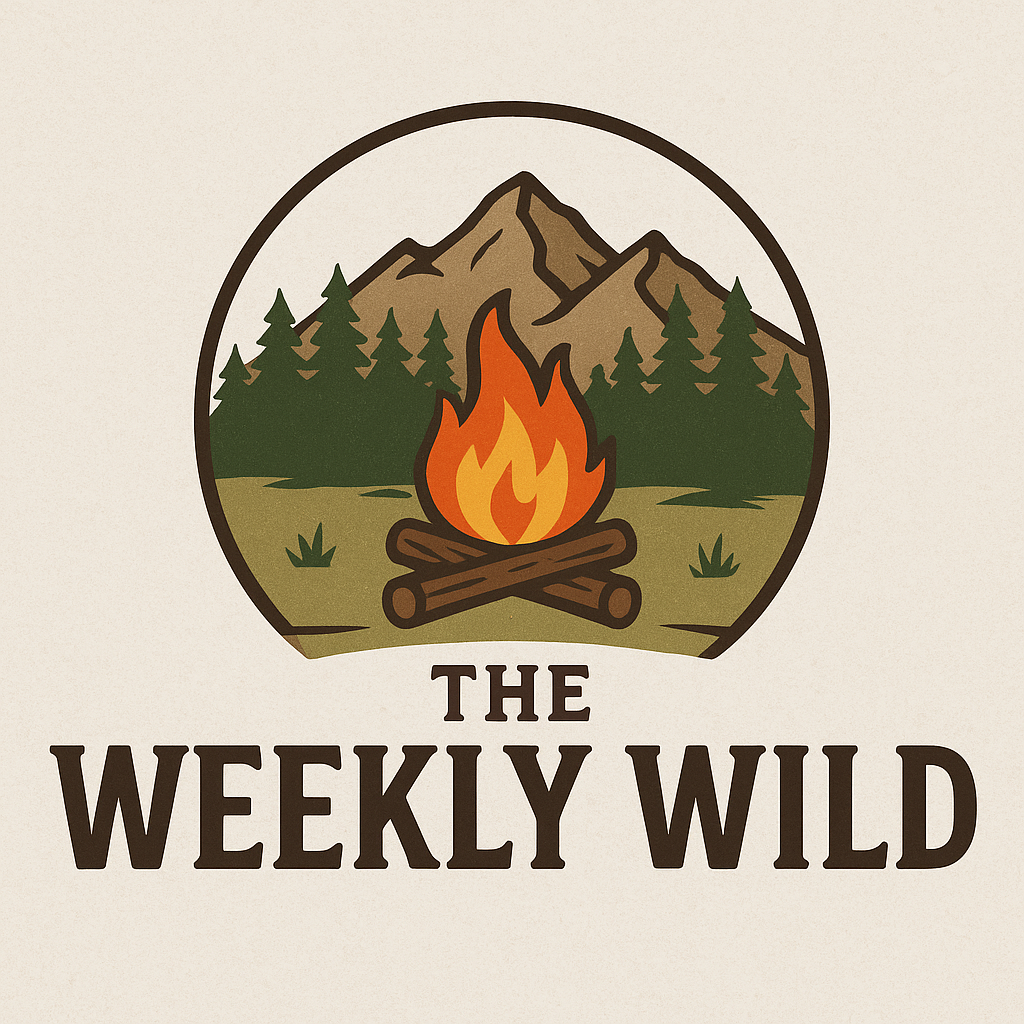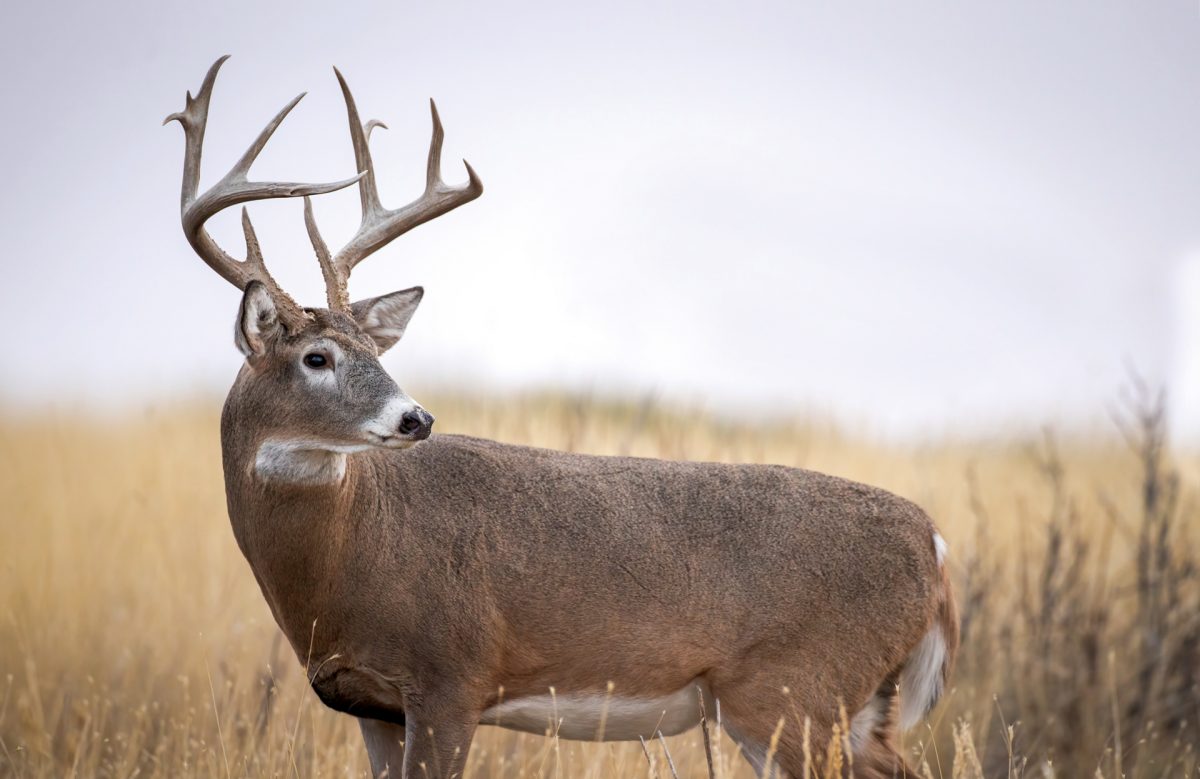Even with deer season in full swing, it is crucial to reflect on why deer hunting is so important. Besides the fun hobby and pastime deer hunting gives, there is a lot more to it. Deer hunting can provide a lot of meat and food for families and communities. Many hunters donate the deer they harvest to local food banks to help their communities, feeding the less fortunate who cannot afford their own food. Hunting deer is also important to the environment in many ways, even affecting climate change in positive ways. With all this in mind, why is hunting necessary? When did this tradition of hunting start?
The act of hunting started way before civilization existed. The first humans hunted all sorts of animals, from small rabbits to mammoths and wildebeests. Early humans relied on hunting for many things, but mostly because it provided the food they needed to survive. Hunting heavily affected the way the first humans lived. Hunting dictated early humans’ nomadic lifestyle. Before agriculture was discovered, humans had to move with the food. If there was nothing in the area to hunt, they would be forced to move to other areas with animals to hunt.
Deer hunting first emerged in Europe tens of thousands of years ago. In France, cave paintings depicting humans hunting deer were found everywhere. These paintings told stories of how hunters would sneak up on the animals and kill them to bring them back to their tribes. The cave paintings captured the simplistic beauty of the deer and other animals the early humans hunted. The artist or artists who created the cave paintings were very talented and well ahead of their time.
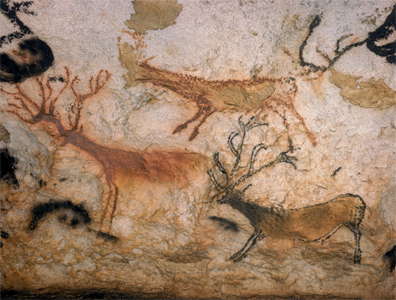
Hunting deer in North America first started with the Native Americans around the year 9,000. Deer were a key part of the Native American lifestyle. They used every single part of the deer, eating the meat, using the deer hide for shelters and clothes, and using the bones and antlers for tools. The Native Americans hunted deer with rudimentary spears, bows, and arrows. This act of deer hunting was picked up by the early settlers when they came to North America from Europe.
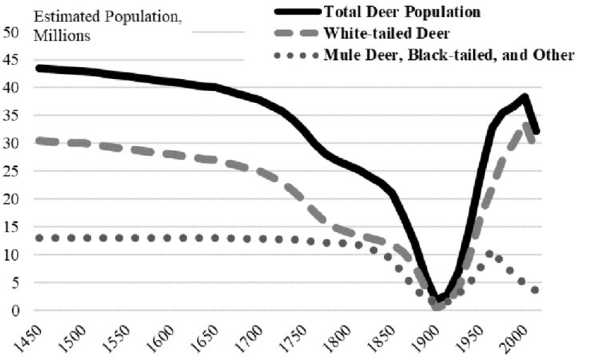
The new age era of deer hunting started around the mid-1800s. Unfortunately, this was before any rules or restrictions were in place, causing an extreme amount of over-hunting. Not just deer either, all sorts of animals were overhunted, some to extinction or on the verge of extinction. The most well-known of these animals almost hunted to extinction is the wild buffalo. Deer even went extinct in some states, like Kansas and Indiana. This was a dark time for the wildlife of North America. Some hunters of the time did not even hunt for meat or hide, just for sport. Hunters would hunt and kill animals and just leave them there or take them just for a trophy.
Eventually, in the late 1800s, rules and regulations for hunting were put in place. The idea of hunting seasons and hunting permits and tags emerged and became popular. The deer population went up even further when World War One took away many hunters for war.
With the background and history of deer hunting out of the way, why is hunting necessary? Deer hunting controls the population of the animals, helps the environment, puts food on people’s plates, and can even help with climate change.
If we did not hunt deer, their population would grow substantially. Forests can become damaged in areas with too many deer. Forests can potentially become damaged when deer consume too many tree seedlings and saplings. When these forests are harmed by the overpopulation of deer, they can no longer provide suitable habitats for other animals.
Forests also decrease the amount of carbon dioxide in the atmosphere substantially, which helps with climate change and damage to the ozone layer. With forests not being able to grow the plants and trees that absorb carbon dioxide, the amount of carbon dioxide just increases. Deer also breathe out carbon dioxide, which only adds to the problem.
Overpopulation of deer can even contribute to the risk of wildfires. With deer killing small plants and saplings, they dry out and become fuel for a potential wildfire. All the dry, dead plants can catch fire very quickly and easily spread to other things in a forest.
One huge benefit of deer hunting is cheap, affordable food for many hunters. If the hunter does all the butchering and processing themselves, it can essentially be free meat! There are multiple organizations and food banks that accept harvested deer donations and give it to the less fortunate. One deer can provide 50-80 pounds of meat. That is a lot of meals from just one animal. There are also so many different recipes for deer meat, also known as venison. From simple burgers and jerky to elaborate and fancy steaks and soups, venison can do it all.
“We hunt wildlife species which exist in very abundant population levels. Hunting provides a management tool for wildlife biologists to regulate these population levels to keep them at acceptable levels.” That is what retired wildlife biologist Brad Poulter had to say about why deer hunting is important. Poulter worked for the Illinois Department of Natural Resources as a wildlife biologist for over 30 years.
“The benefits of hunting are numerous. As stated previously, regulated hunting helps control wildlife populations to keep them at acceptable levels. Without hunting, deer populations would soar creating extensive agricultural crop damage as well as vehicle damage,” Poulter stated.
“Hunting provides tremendous recreational opportunities and also enjoyment of the outdoors. It brings families and friends together for happy times that will be remembered throughout their lives. It provides an excellent meat resource for the table and teaches families to be self-sustainable.”
Hunting is an important and impactful pastime for multiple reasons, as Poulter said above. Poulter had one last thing to say on the matter:
“Regulated hunting is the main form of deer population management in the state of Illinois since there are no other significant predators other than man.”
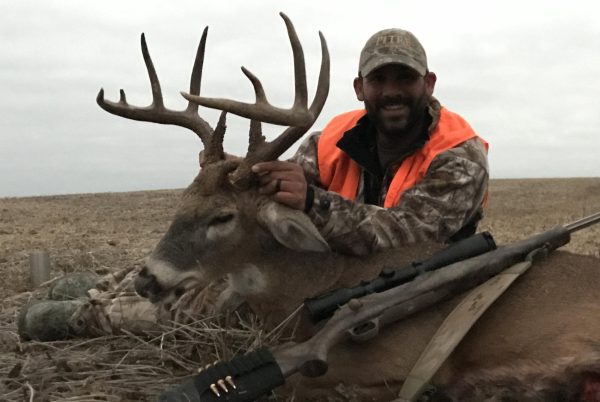
All in all, deer hunting is a fun, safe, and heavily regulated activity. Hunting deer is crucial for the environment, otherwise the deer population would grow and increase unchecked. This would negatively affect forests, climate change, habitats, and much more. Deer hunting has a long, rich history and will continue to be a tradition for many generations to come.
